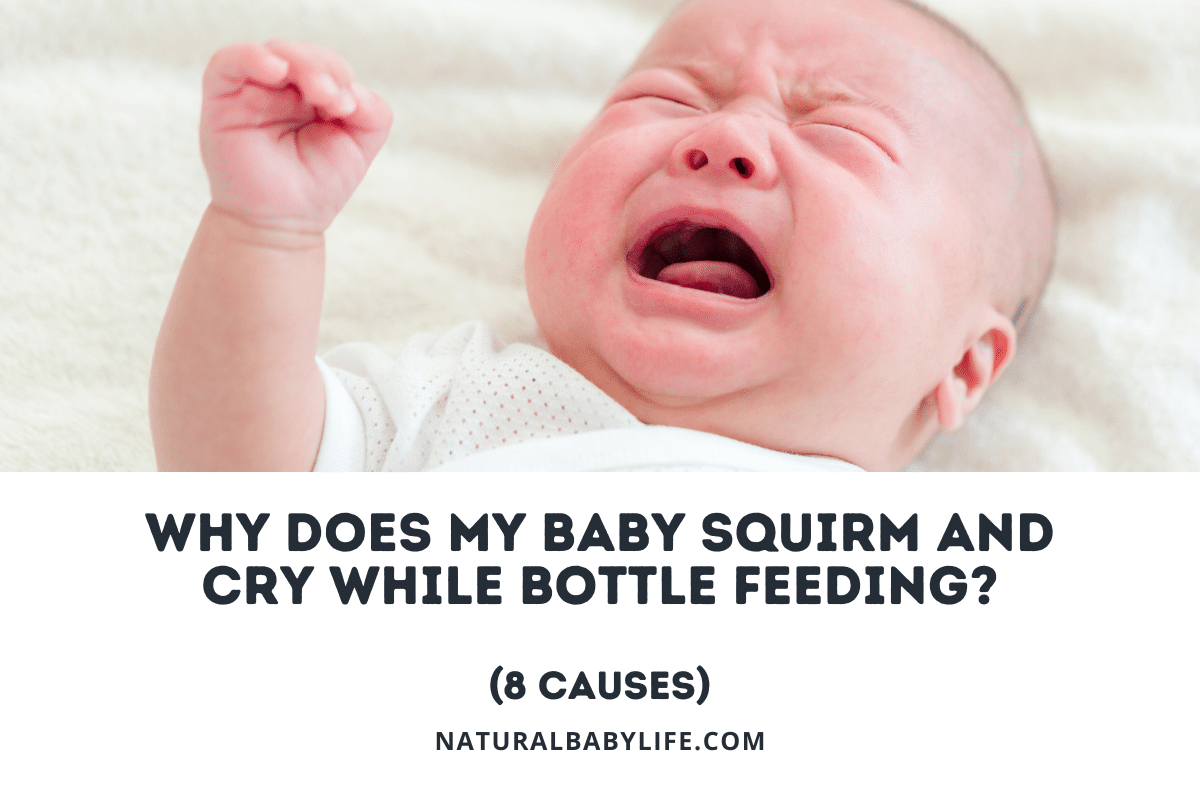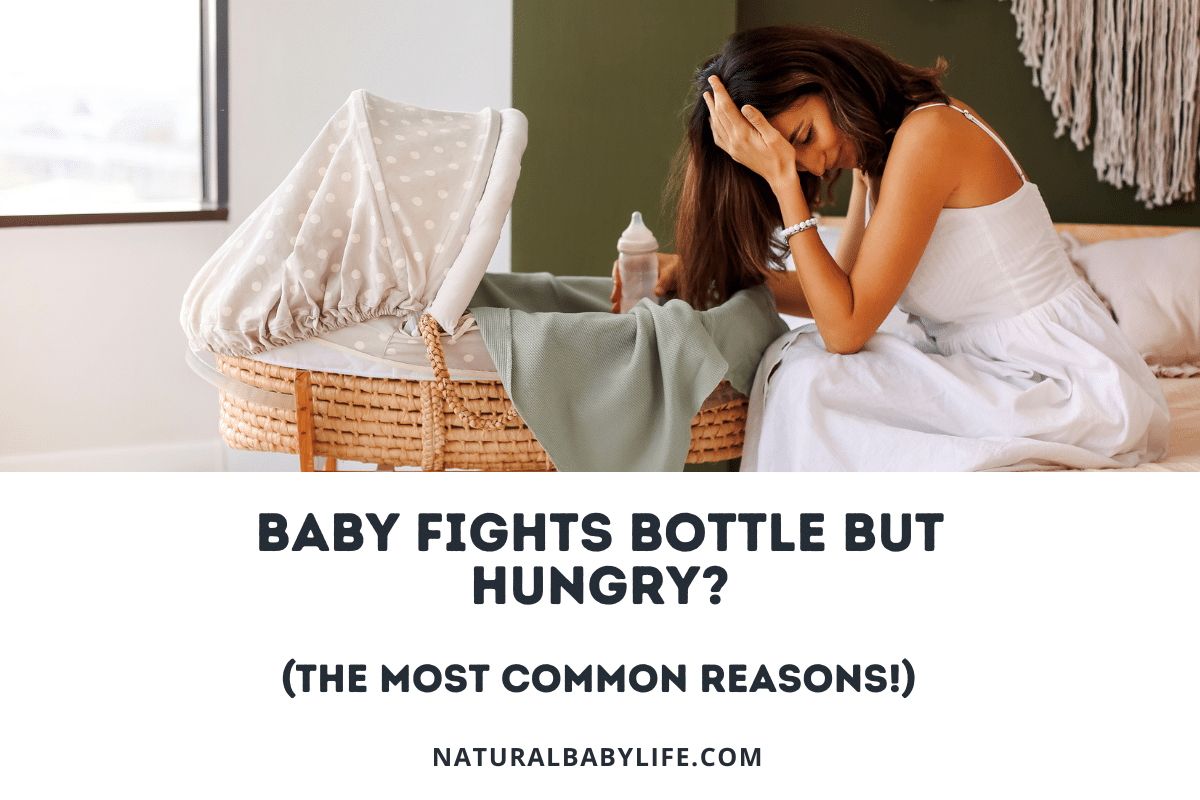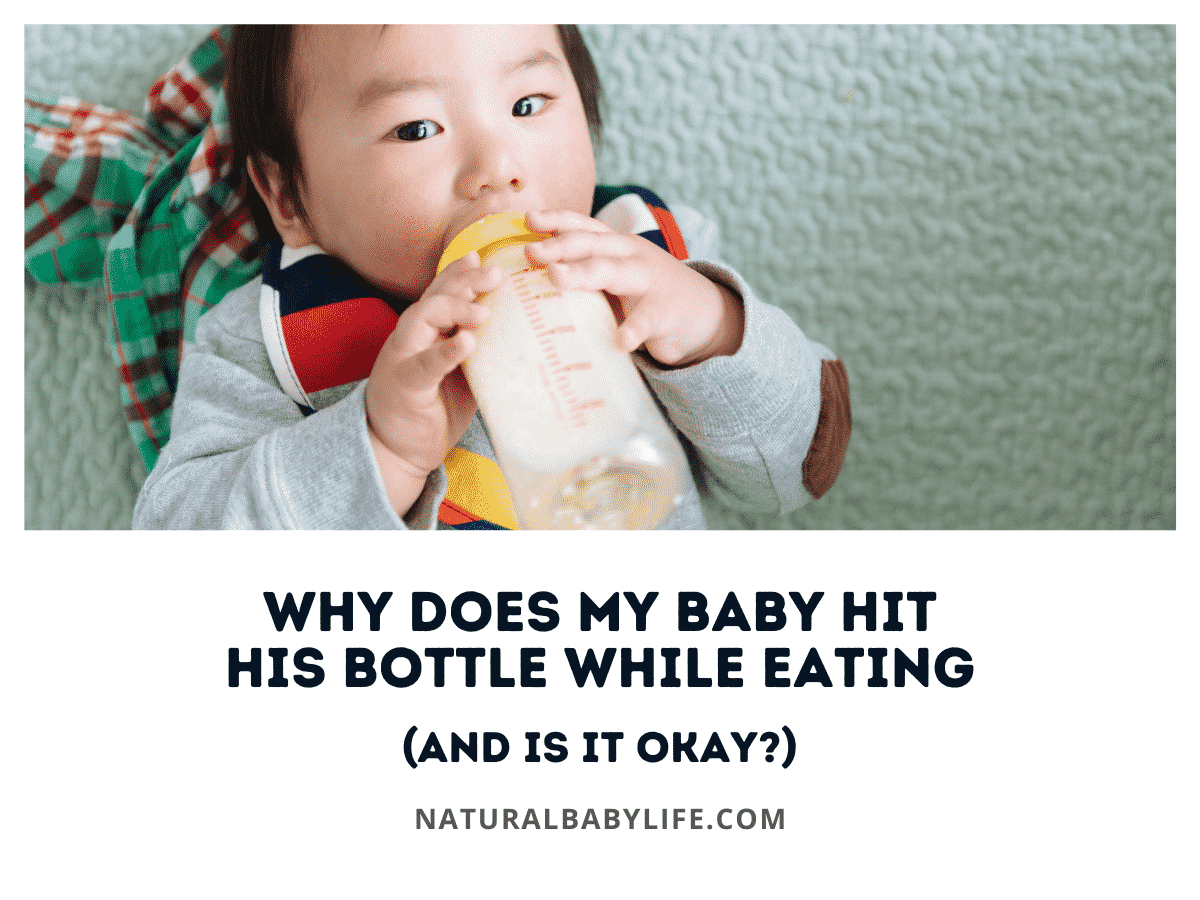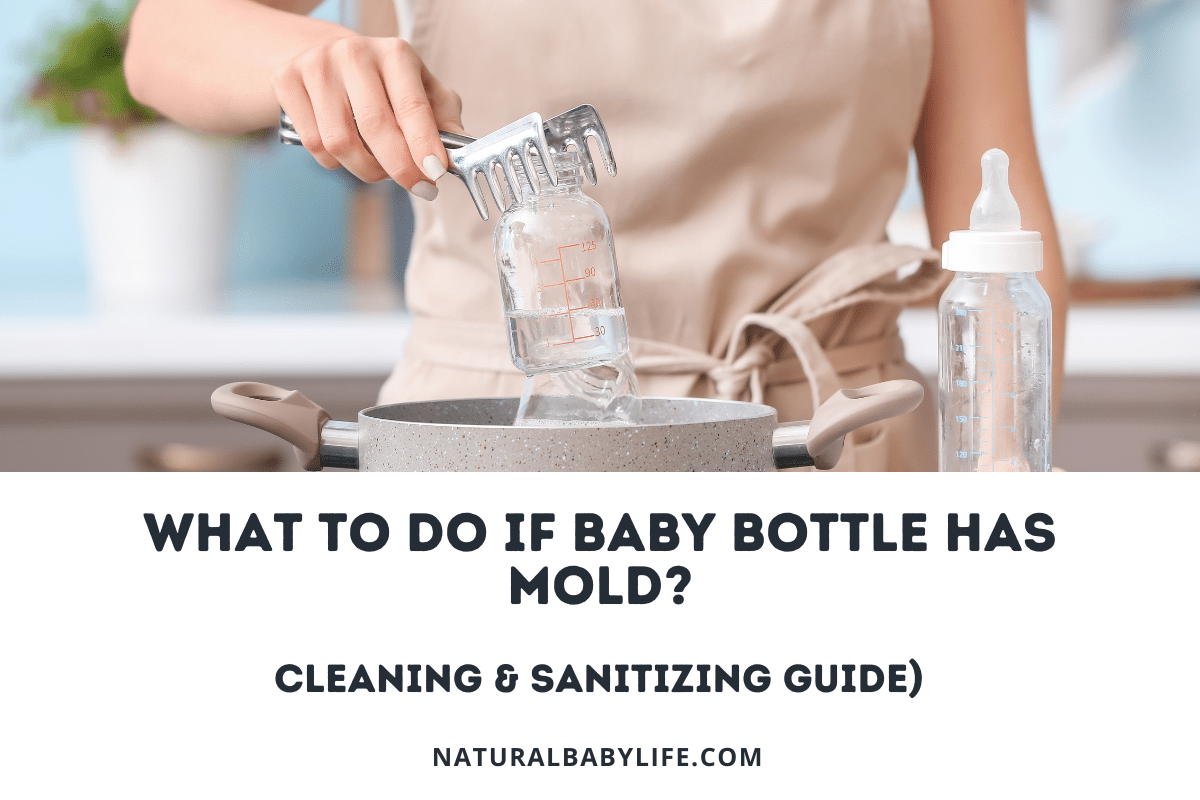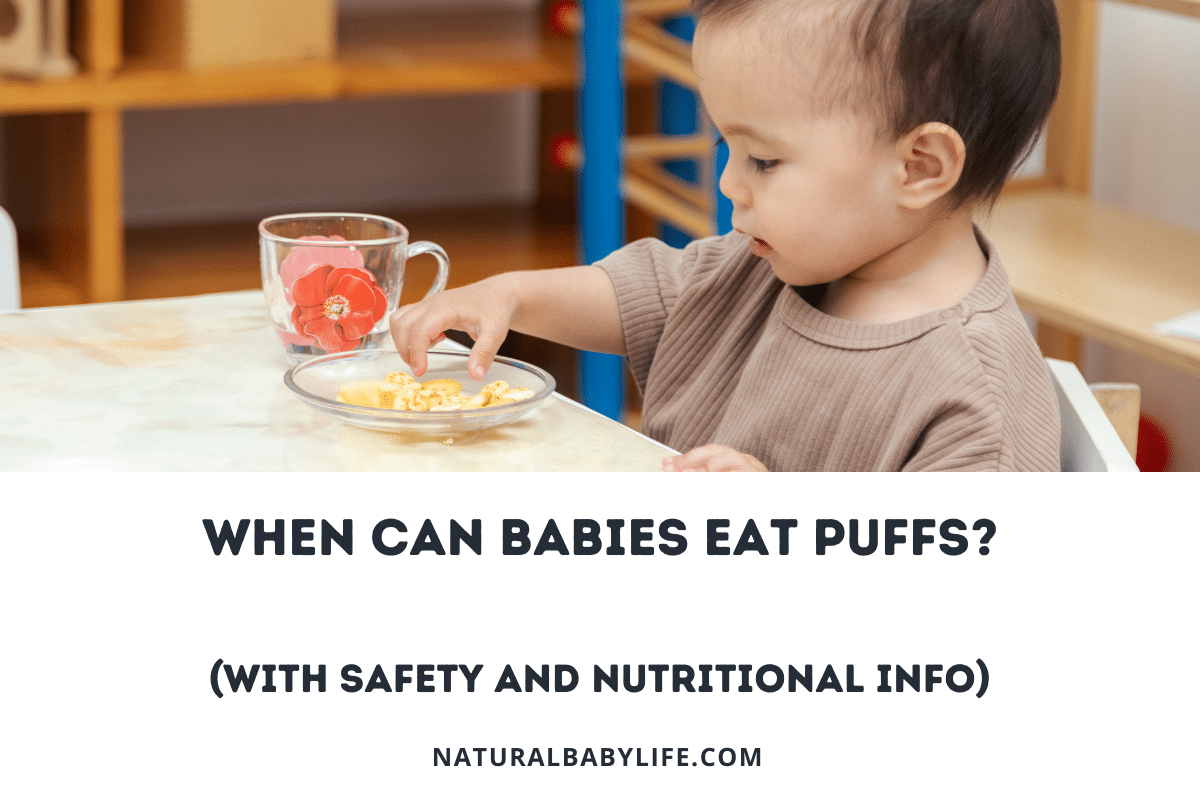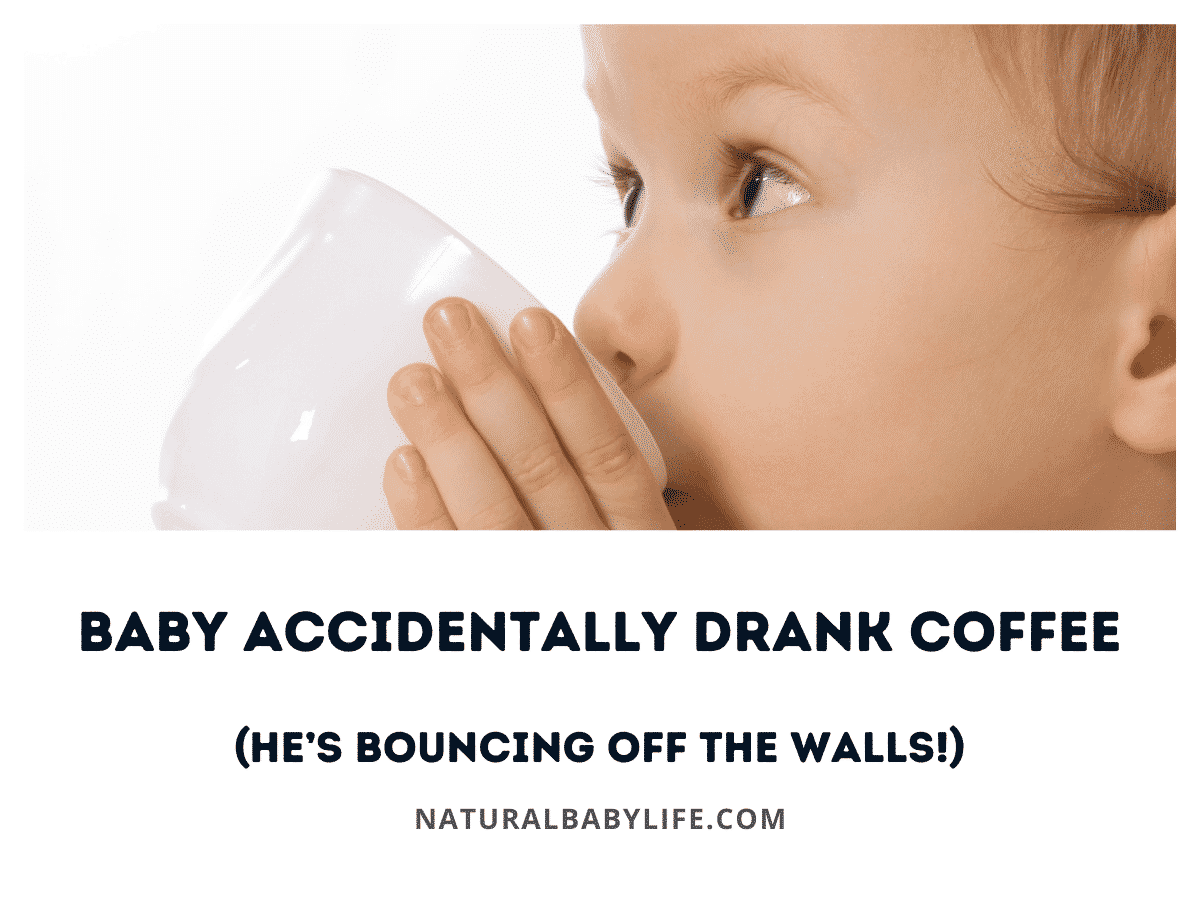There’s nothing more important to you as a parent than making sure your baby is comfortable, safe, and well-fed. It can be extremely frustrating if your baby is crying while you are trying to fulfill one of their basic needs, especially if you don’t know why they’re upset. If you’re wondering why does my baby squirm and cry while bottle feeding, you may be desperate for a solution.
If your baby is crying during a bottle feeding, the most common causes are improper nipple size or milk flow, reflux, lack of hunger, tiredness, or a food allergy. To determine what is causing your baby’s fussiness during bottle feeding, it’s best to look at all the possibilities of what could be causing your baby’s distress.
Although food allergy may be the most common response when you ask why does my baby squirm and cry during bottle feeding, there are numerous other possible causes. Before you write it off as an allergy, let’s look into the most common reasons why your baby might be crying while bottle feeding.
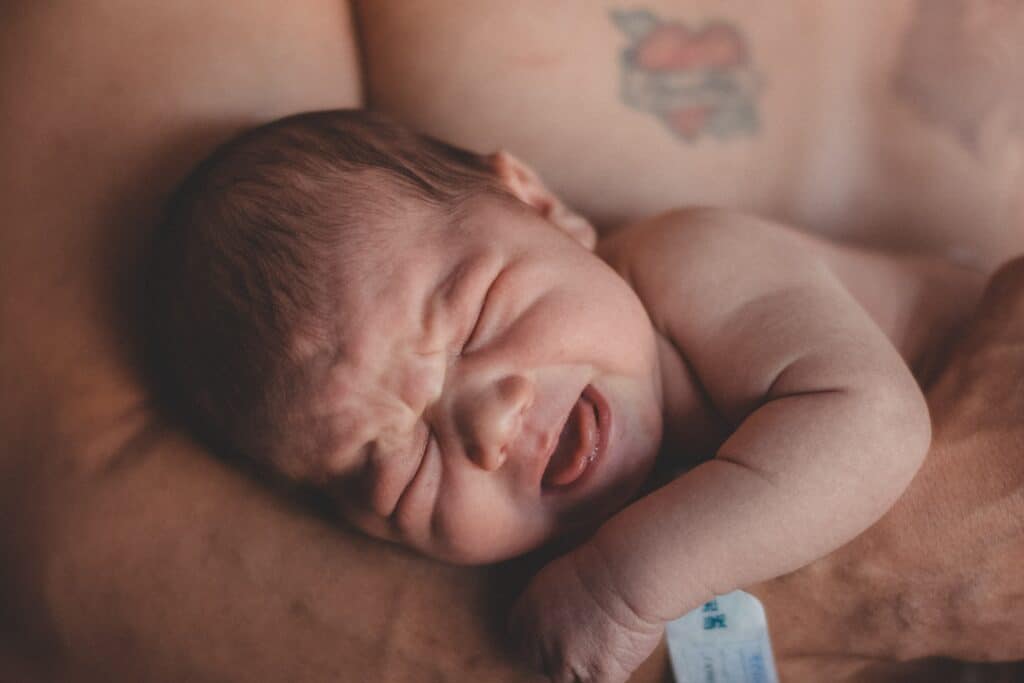
Table of Contents
Why does my baby squirm and cry while bottle feeding?
Crying while bottle feeding isn’t as uncommon as you might think. According to the NCBI (National Center of Biotechnology Information), around a quarter of all infants spend a significant portion of the first few months of their life crying excessively and not responding to the desperate soothing attempts of their parents. Excessive crying in infants, especially for several hours in the morning or afternoon, is usually referred to as colic.
Babies who cry excessively are usually deemed “colicky babies.” Since there isn’t one specific cause of colic, sometimes the exact reason isn’t found. This can be very frustrating for parents who are just trying to comfort and soothe their little ones.
If your baby has colic, know you’re not alone in your frustration and it’s not your fault if your baby doesn’t respond to your soothing techniques.
If your baby is crying during a bottle feeding, your first thought may be that your baby has an allergy. However, If your baby does have an allergy to cow’s milk or something else present in their formula, you will likely notice other symptoms as well, such as:
- vomiting
- diarrhea
- rash
- blood or mucus in stool
If you notice any of those symptoms, check with your pediatrician before making any change in your baby’s formula or feeding routine.
According to the University of Michigan School of Medicine, lactose intolerance is very rare in babies, and you shouldn’t change your baby’s eating habits before checking in with their doctor. Fortunately, there are many formulas available today made specifically for a baby with lactose sensitivity or allergy.
Here is one of the best options for helping your baby!
There are plenty of other reasons why your baby may be upset during a bottle feeding, such as an issue with the bottle nipple, a tummy ache, acid reflux, or even a growth spurt. Examining all possibilities may help you find what soothes your baby, and it is always best to check with your pediatrician before making any changes in your child’s diet.
Signs of a bottle feeding problem
Other than squirming and crying during a feeding, you might wonder what other symptoms are indications that there’s a bottle feeding problem. When your baby has an issue with bottle feeding, they may:
- Squirm, cry, or turn away from the bottle
- Refuse to take a bottle
- Refuse to close their mouth on the bottle
- Chew on the nipple or refuse to suck
- Drink only a little bit
- Scream or cry when you put the bottle in their mouth
- Scream or cry before you feed them when you start to put them in a nursing position
- Cough or choke while feeding
- Have milk falling or dribbling out of their mouth
- Drink too much or too little
- Spit up or throw up frequently
- Fall asleep frequently before finishing their bottle
If your baby is showing any of these signs, there may be an underlying cause for their distress. Trying to figure out what’s wrong can be a frustrating process, but once you figure out what’s wrong, you’ll be relieved to have a solution.

Common causes of baby squirming and crying during bottle feeding
If you’re wondering why does my baby squirm so much while eating, let’s look at the most common causes.
Acid reflux
When babies have reflux, their stomach contents come back into their esophagus after they eat. For many babies, this is due to the lower esophageal sphincter muscle not being fully developed, and reflux typically goes away once the muscle fully develops. However, babies with reflux may be incredibly uncomfortable after eating and this may lead to crying or fussing during bottle feeding.
Milk flow or nipple size
Crying is the only way babies can communicate with their babies, so they’re going to cry whenever they’re uncomfortable. If the milk flow of the bottle is coming out too fast or too slow, or the nipple size is affecting the milk flow, your baby will likely cry during a feeding.
Lack of hunger
If you’re misinterpreting your baby’s cues, there may be issues when you try to feed them a bottle. A newborn baby may eat even if they’re not hungry, leading to a tummy ache or gassy baby later on. When you try to feed your baby a bottle but they aren’t hungry, you may notice them fussing at the bottle or drinking a little bit and then refusing the rest.
Tiredness
Tiredness is another cause of baby squirming and crying during a feed. The more tired your baby is, the crankier they will become. So even though the bottle may normally put your baby to sleep, if they’re already overtired, you might find them crying or fussing instead.
Tummy ache or gas
If your baby is uncomfortable due to a tummy ache or gas, they may turn away from the bottle and cry instead. When babies have gas or a stomach ache, you will usually notice them kicking their legs, or pulling their legs up to their stomach.
Growth spurt
Babies go through plenty of growth spurts in their first year of life. If you’re feeding a baby during a growth spurt, they squirm or be fussier than normal. This is especially true if they’re teething as well. Many babies want to eat more during a growth spurt, but it also might cause them to fuss during a feeding.
Food allergy
When your baby cries during bottle feeding, you might first assume it’s an allergy. About 5 percent of children under 5 have food allergies, so it’s important to look into this, especially if your baby has other symptoms. If you suspect your baby has a food allergy or they have other symptoms such as diarrhea, rash, and blood or mucus in their stool, be sure to talk to your pediatrician.
Distractions
When babies start to become interested in their surroundings, distractions happen. Your baby may squirm during a bottle feeding if they become distracted and want to see what’s going on around them. Especially if you’re feeding your baby in a place with lots of noise or lights, you may notice your baby squirming or pulling off the bottle in the middle of a feeding.

How to help a baby stop crying while eating
Sometimes when your baby is crying during a bottle feeding, there may be a simple fix. For instance, If your baby is crying mid-feed, it’s possible your baby has gas and you may need to stop to burp your baby.
Before you jump to any conclusions, if your baby is crying mid-feed, it’s helpful to check a few things first:
- Is your baby in a comfortable position? Position matters when bottle feeding, especially when you are trying to avoid having a gassy baby.
- Does your baby need to be burped? Any kind of tummy pain is going to upset your baby during a feeding.
- Have you checked the nipple to make sure it has the proper flow? If there isn’t enough milk coming out of the nipple, or too much milk, this may frustrate your baby.
- Is this a common occurrence? If your baby isn’t feeling well or there is another outside cause, it may be something other than a bottle issue. But if this is a common occurrence during feeding time, it’s worth spending time figuring out what the issue is.
I should also point out that purchasing a high-quality baby bottle designed to minimize the amount of extra air going into your baby’s mouth should be your first step in dealing with a frequently gassy baby.
With our last two babies, we’ve thoroughly enjoyed using the ComoTomo Natural feel bottle because it dramatically reduces extra air intake, it’s super easy to clean, and the unique shape makes it easier for babies to learn to hold. You can check it out right here.
What if baby is crying halfway through a bottle?
If your baby is crying halfway through a bottle, your baby might be full, or might need to be burped. It’s important to feed your baby in a partially upright position instead of flat on their back to avoid giving them excessive gas. Try burping your baby and changing their feeding position if necessary.
Once you have burped your baby, make sure the proper amount of milk or formula is coming out of the nipple. If there is a defect in the bottle nipple, the liquid may not be flowing correctly, which would certainly frustrate your baby.
Think about the last time your baby was fed and the last time they took a nap. A baby who is tired or went too long between bottles may be cranky and fussing during their bottle feeding. Try to soothe your baby by holding them and rocking them. Remember to put your baby down for a few minutes if the crying starts to get to you. It is better to step away for a moment than to get frustrated with your baby.
What if the baby refuses the bottle completely and cries?
If your baby refuses the bottle completely and cries, your baby may not be hungry yet, or they may not be feeling well. If there are any other symptoms present such as a runny nose or a fever, the bottle may not be the reason why baby isn’t eating. Just like we tend to lose our appetite when we’re sick as adults, your baby may not feel like eating if they’re sick.
Try to soothe your baby by rocking and swaying them gently, and then try to feed your baby again in a few minutes. Be sure to check the temperature of the bottle in case the formula or breastmilk is too hot or cold.
You may also try switching your baby to a different position. If your baby is uncomfortable, that may prevent them from wanting to take the bottle.
What if baby is pushing the bottle away but still hungry?
If your baby is pushing the bottle away but still seems hungry, there are many possible causes. One possibility is your baby may be suffering from reflux. Being unsettled during a feeding one sign of reflux in babies. However, there may be other signs as well, such as:
- Excessive spitting up with visible signs of being uncomfortable
- Swallowing noises or gagging during a feeding
- Preference for being held upright
- Coughing after bottle-feeding
- Restless sleep
Although reflux is a possibility, there are many other possible causes of your baby’s discomfort as well. If you suspect your child may have reflux, check with their pediatrician before making any decisions about their feeding routine.
There is some evidence that reflux and general digestive fussiness could be helped by a gentle baby probiotic such as this one made by Gerber. Many parents claim that it worked wonders for their fussy baby!
- Comforting probiotics: these non-GMO drops feature comforting probiotics that are effective in helping reduce crying time and spit-ups, shown to provide health benefits in infants when taken daily
- Ease fussiness: this formula was designed to help ease colic, excessive crying & fussiness for babies.
Prices pulled from the Amazon Product Advertising API on:
Product prices and availability are accurate as of the date/time indicated and are subject to change. Any price and availability information displayed on [relevant Amazon Site(s), as applicable] at the time of purchase will apply to the purchase of this product.
Why is my baby squirming or kicking legs while bottle-feeding?
When your baby is squirming or kicking their legs while bottle-feeding, those are usually signs of a tummy ache. If your baby has a tummy ache, it’s possible they may just need to be burped. It may also be beneficial to check the position in which you are feeding your baby.
When you are bottle-feeding, it’s important to make sure you are holding the bottle at a slight angle so that no extra air gets in the bottle, and the baby should be partially sitting up to help prevent gas.
Burping your baby before and after every feeding will help relieve some of their discomforts, and gently massaging your baby’s back after feeding may also help to relieve some of the gas.
What if my baby isn’t swallowing milk from the bottle?
If your baby isn’t swallowing milk from the bottle, you may want to double-check the nipple to see if there is damage and make sure it is the correct size. Your baby may not be getting enough milk or may not be able to pull any milk out on their own.
When you turn the bottle over, the formula or milk should come out at about a drop a second for a size one nipple. If it comes out slower or faster than that, you may want to try a different bottle nipple.
In some cases, you might need to switch the size of the bottle’s nipple. Newborns should start with a slow-flow nipple which will transition over time.
What if your baby is fussy while bottle-feeding breast milk?
If your baby is fussy when drinking breast milk out of a bottle, a reaction to cow’s milk is still a possibility. Breastfed infants can actually be affected by dairy products ingested by the mom before the breast milk is expressed.
If your baby fussing while bottle-feeding breast milk is a common occurrence, mention it to your child’s pediatrician so they can rule out the possibility of an allergy.
Another possibility is your baby may be reacting to the taste of the milk. According to the La Leche League, lipase is a naturally occurring protein in breast milk, but when an excess amount of lipase is found in breast milk, it may cause a strange odor or smell that may be bothersome to your baby. Freshly expressed milk usually has a less intrusive odor or smell, so you can try to mix the stored milk with freshly pumped milk to see if the taste is the source of your baby’s fussing.
FAQs
What if my baby prefers solids to breast milk or formula?
How important solid foods are depends on the age of your baby. You should introduce solids around 6 months and they can eat a variety of foods by 7 or 8 months. Prior to a year old, formula or breastmilk is still a baby’s main source of nutrition. So if your baby is under a year old and prefers solid food, you may need to limit their solids to ensure they’re receiving enough formula or breastmilk.
Should I give my baby solids before or after a bottle?
If you give your baby solid food before a feeding, they may not be hungry and might refuse the bottle. For younger babies, you should always offer a bottle first to ensure they get the proper nutrients. Between 9 to 12 months old, you can offer solids before or after a bottle.
Why is my baby flailing arms and legs while bottle feeding?
If your baby is younger than 2 or 3 months old, they likely still have a startle reflex. If your baby is flailing their arms and legs while bottle feeding, they might be responding to a loud noise. Sometimes babies can even startle themselves by crying.

